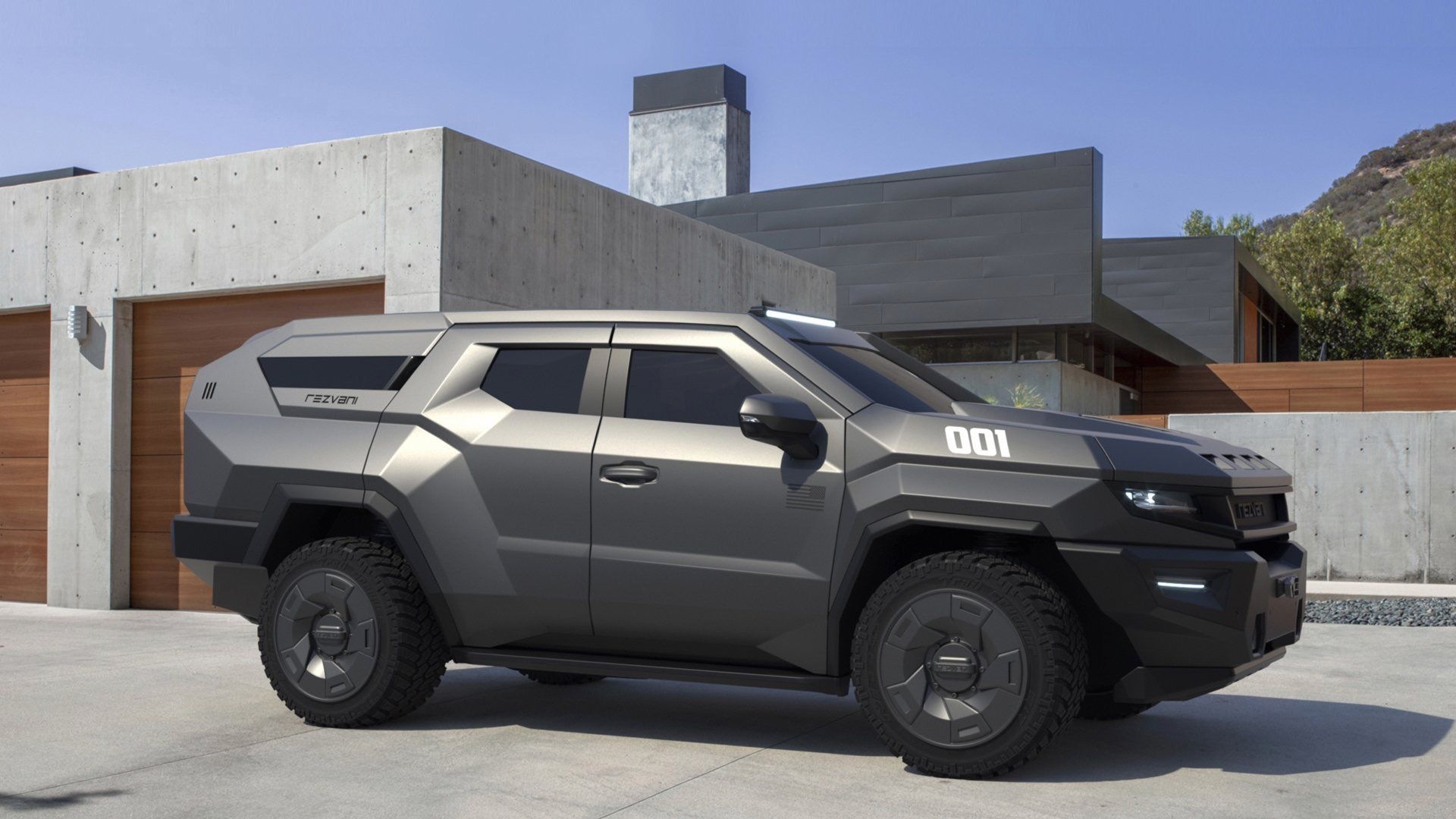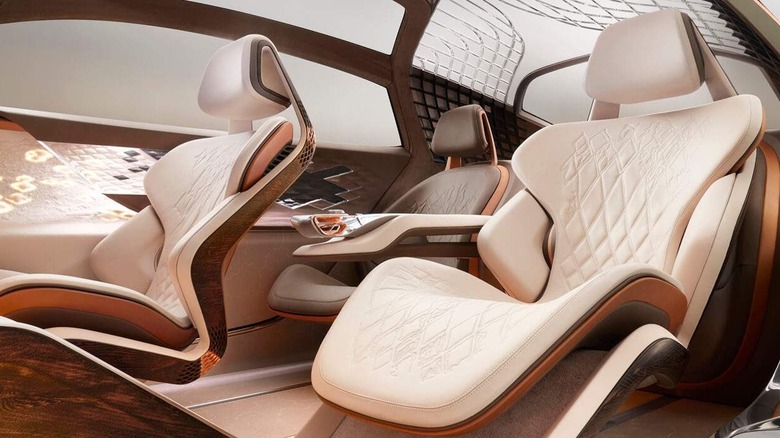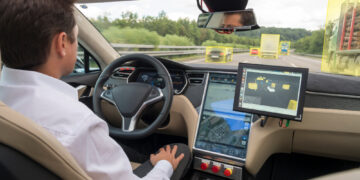The year 2025 stands as a critical juncture in the automotive world, where the very concept of a “car” is being redefined. It’s no longer just a mode of transportation but a complex, intelligent, and highly connected ecosystem on wheels. For consumers, the question is no longer just about horsepower or fuel economy but about building a relationship with a vehicle that can evolve with technology, adapt to a changing world, and remain relevant for years to come. Future-proofing your ride is about making a smart, strategic investment in a vehicle that is ready for the challenges and opportunities of the coming decade. This article will provide a comprehensive guide to the key features and technologies you should look for in 2025, exploring how to choose a car that is not only equipped for today but also for the automated, electric, and sustainable future of mobility.
The Digital Foundation

The most significant factor in a car’s longevity is no longer its mechanical reliability but the intelligence of its software. The vehicles of 2025 are fundamentally software-defined, with the ability to evolve and improve over time.
A. Over-the-Air (OTA) Updates: This is the most crucial feature to look for. A car with OTA update capability can receive software upgrades wirelessly, just like a smartphone. This means the car’s infotainment system, safety features, and even its performance can be enhanced without a trip to the dealership. It ensures your car’s technology remains up-to-date and secure for years.
B. Cloud and App Integration: Your car should be a seamless extension of your digital life. Look for a vehicle that integrates deeply with your smartphone and cloud services. This allows for features like remote unlocking, pre-heating the cabin, and sending navigation routes directly from your phone.
C. AI-Powered Infotainment: The infotainment system is the central point of your interaction with the car. A future-proof system will use Artificial Intelligence (AI) to learn your preferences, provide predictive navigation, and offer a highly personalized experience. Look for a system with a large, responsive touchscreen and a sophisticated voice assistant that can understand natural language.
D. Robust Cybersecurity: As cars become more connected, they become more vulnerable to cyberattacks. A future-proof car will have a robust cybersecurity architecture to protect your personal data and the vehicle’s systems from unauthorized access. This is an essential, though often overlooked, feature.
The Shift to Sustainable Powertrains
The future of mobility is unquestionably electric. While internal combustion engine (ICE) vehicles will still be on the road for years, investing in a hybrid or fully electric vehicle (EV) is the most effective way to future-proof your ride against rising fuel costs, stricter emissions regulations, and the eventual obsolescence of gas-powered cars.
A. Electric Vehicles (EVs): This is the ultimate future-proofing choice. EVs are defined by their instant torque, quiet ride, and zero tailpipe emissions. Look for an EV with a long range (over 400 km is a good benchmark in 2025), and the ability to charge on an 800-volt fast-charging network, which can add hundreds of kilometers of range in just a few minutes.
B. Plug-in Hybrid Electric Vehicles (PHEVs): If you’re not ready to go all-in on an EV, a PHEV is an excellent transitional option. A PHEV combines a traditional engine with an electric motor and a larger battery. This allows for all-electric driving for short distances (e.g., your daily commute) and the flexibility of a gas engine for longer trips, effectively giving you the best of both worlds.
C. Hydrogen Fuel Cell Vehicles (FCEVs): While less common than EVs, FCEVs are a viable future-proof option, especially for those who prioritize fast refueling. FCEVs run on hydrogen, with their only emission being water vapor. The technology is rapidly advancing, and new models are hitting the market that offer a long range and a refueling time comparable to that of a gasoline car.
D. Bi-directional Charging: Look for a vehicle with bi-directional charging capability. This is a game-changing feature that allows your car to send power back to your home or the electrical grid. Your car can act as a mobile power bank during a blackout or help you save money on your electricity bill by providing power during peak hours.
Building for Safety and Autonomy
The evolution of automotive technology is making our roads safer than ever. The vehicles of 2025 come with an advanced suite of safety features and a level of autonomy that makes driving less stressful and more secure.
A. Advanced Driver-Assist Systems (ADAS): This is the foundational layer of autonomy. Look for a car with a comprehensive ADAS suite that includes adaptive cruise control (which can handle stop-and-go traffic), automatic emergency braking, lane-keeping assist, and blind-spot monitoring. These systems can help prevent accidents and make long drives more comfortable.
B. Lidar and Advanced Sensor Suites: To enable a higher level of autonomy, look for a vehicle equipped with a sophisticated sensor suite, including Lidar, Radar, and high-resolution cameras. Lidar uses light pulses to create a highly detailed 3D map of the car’s surroundings, which is crucial for navigating complex urban environments and is a key technology for a more advanced level of autonomy.
C. Vehicle-to-Everything (V2X) Communication: A future-proof car will be able to communicate with other cars (V2V), with traffic lights and road signs (V2I), and with pedestrians and cyclists (V2P). This real-time communication creates a more collaborative and safer driving environment. For example, your car can receive a warning about an accident around the corner, allowing it to slow down and avoid a potential collision.
Design and Customization for the Future

The design of a car is no longer just about aesthetics; it’s about functionality, efficiency, and adaptability. The vehicles of 2025 are designed with a focus on interior space, customization, and a sustainable material palette.
A. The “Skateboard” Platform: The flat battery pack and integrated motors of an EV create a “skateboard” platform that frees up interior space. Look for a car that leverages this architecture to provide a spacious, open, and flexible cabin.
B. Sustainable and Recycled Materials: The future of car design is deeply connected to sustainability. Look for a vehicle that uses recycled plastics, natural fibers, and other eco-friendly materials in its interior. This not only reduces the car’s environmental footprint but can also provide a unique and luxurious feel.
C. Modular and Customizable Interiors: The interiors of future-proof cars are being designed to be easily reconfigured. Look for a vehicle with modular seating, a flexible cargo area, and a user interface that can be easily customized to your preferences.
Conclusion
Future-proofing your ride in 2025 is a strategic decision that goes far beyond a simple purchase. It’s about investing in a vehicle that is not just a mode of transportation but a dynamic, intelligent, and sustainable partner in your life. By prioritizing key features like Over-the-Air updates, a flexible and efficient powertrain, advanced safety and autonomy features, and a smart, sustainable design, you can ensure that your car remains at the cutting edge of technology for years to come.
The long-term impact of this strategic approach is immense. It will lead to significant savings on fuel and maintenance, a reduced environmental footprint, and a more enjoyable and safer driving experience. The cars of 2025 are a testament to the idea that the most exciting innovations are those that are not just beautiful or powerful but are also smart, sustainable, and deeply human-centric. By choosing a ride that is ready for the future, you are not just buying a car; you are investing in a better, cleaner, and more connected way of life.











